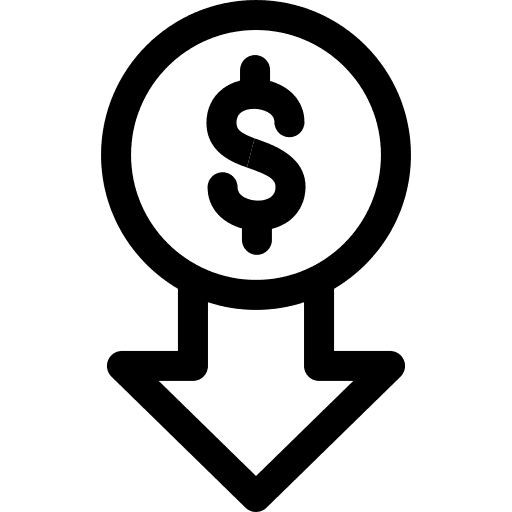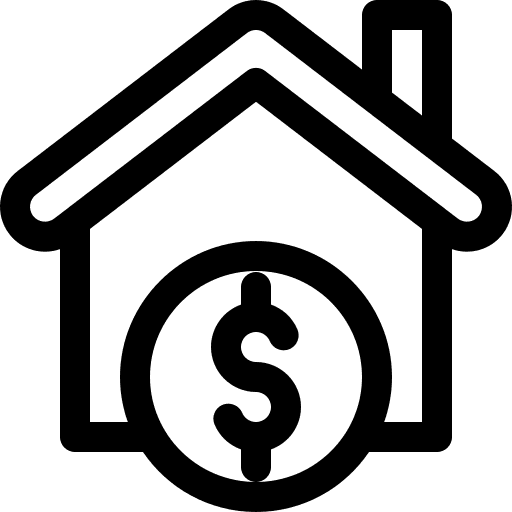For most borrowers, the savings that come from switching home loans far outweigh the costs that come with discharging one loan and setting up a new one.
But that's not always the case. Borrowers on fixed rate loans, or who have little equity built up in the property, risk paying hefty penalties for refinancing. The smart refinancer calculates their switching costs before making the move to a new loan.
5 common costs of switching home loans
- Mortgage discharge fees. Some lenders charge a fee when you exit a loan for any reason. It's usually a few hundred dollars. Check your loan contract or ask your lender.
- Mortgage registration fees. State and territory governments charge a fee to register a new mortgage. It's usually $100 or slightly more.
- New application fee. Your new lender may charge you an application fee or settlement fee. Some lenders charge between $400 and $600 for this. Some lenders don't charge you a cent.
- Break costs on fixed rate loans. When you break a fixed-term loan, your lender charges a complicated fee. This fixed rate break cost is determined by the length of your fixed period, your loan amount and current market rates. Ask your current lender for a break cost estimate before refinancing.
- Lenders mortgage insurance (LMI). If you bought a house with a deposit below 20%, your original lender would have charged you lenders mortgage insurance. If you refinance, your new lender could charge you for LMI again if your outstanding loan debt is still more than 80% of the property's value (meaning your deposit, or now equity, is still under 20%). LMI can cost thousands or even tens of thousands of dollars.
Refinance your home loan today – check out 250+ rates, fees and cashback offers

"It's important to know what costs are involved before commencing – but it's also important to know what the cost will be by staying with your current lender. Mortgage brokers generally have a calculator they can use to show you the savings in year 1 and subsequent years which accounts for any fees, so it's handy to ask for this. Cash backs are still around at some lenders, so this is a way you can offset the costs associated with refinancing a mortgage."
How to estimate your refinancing costs
To give you a clearer example of the costs above, we've broken down an example estimate of the fees you may face when refinancing your mortgage. Note that these fees can vary from one lender to another.
| Expense type | Cost |
|---|---|
| Discharge fees | $100-$200 |
| Mortgage deregistration fee | $120 (varies according to state) |
| Mortgage registration fees | $120 (varies according to state) |
| Application fee | $500 |
| Settlement fee | $75 |
| Bank valuation fee | $220 |
| Title search fee | $30 |
| Preparation of mortgage documents | $100 |
| Total refinancing costs: | $1,325 |
You can also use our calculator below to estimate your total switching costs.
Finder survey: How many Australians have refinanced a home loan?
| Response | |
|---|---|
| Yes | 93.24% |
| No | 6.76% |
Is switching home loans a good idea?
How do I pay less when switching my home loan?
Why pay more to refinance than you need to? There are some easy ways to make switching cheaper.

Look for a new lender with low fees
A low interest rate is always the most important feature of a mortgage. But finding a loan with low fees is a good idea too. Many lenders now offer loans with no upfront fees at all.

Don't refinance until you have 20% equity
It's probably not worth refinancing if you have to pay LMI. You're better off making loan repayments, checking the value of your property (hopefully it's higher than when you bought) and waiting until you own at least 20% of the property.
Then you can refinance without paying thousands in LMI premiums.

On a fixed rate? Maybe wait
Breaking a fixed rate loan can cost hundreds, or possibly thousands of dollars. If you're nearing the end of the fixed period the break cost will be smaller. Refinancing could still be a cost-effective move.
But if you have a big loan and you fixed for several years to come, your break costs could wipe out the savings that come from switching. You may have to wait it out.
A refinance cashback can cover switching costs
Many lenders offer cashback deals to attract refinancers. Home loan cashbacks are worth between $2,000 and $4,000, which should more than cover your costs of refinancing. Just make sure the new interest rate and loan is a good deal compared to your current loan.
How do you switch your mortgage to another bank?
Refinancing your home loan sounds like a big task, but it's often easier than applying for your first home loan. If you've been making your repayments, you've built a strong track record to demonstrate to potential lenders that you're a responsible borrower, so half your work is done.
Refinancing involves 7 steps (and if you're reading this guide you've already started):
- Look at the cost of your current home loan.
- Ask your current lender for a better deal.
- Check out how much it will cost to exit your current loan.
- Compare home loans.
- Look at the costs of moving to the new lender.
- Apply for your new home loan.
- Exit your old loan.
Check out our in-depth guide to every step of the refinancing process if you need more help.
How long does it take to refinance?
Not as long as you might think! Check out a video of one borrower's refinancing story.

Sources
Ask a question
2 Responses
More guides on Finder
-
The Unloan Home Loan Refinance Hub
SPONSORED: Refinancing your home loan with Unloan can offer a range of benefits, including lower interest rates and more!
-
Can you refinance without a job? A guide to refinancing when unemployed
Unless you have another source of income, it's very difficult to successfully refinance while unemployed.
-
Refinancing an SMSF home loan
Refinancing an SMSF home loan is the same as refinancing any other home loan, although it requires some extra thought and consideration.
-
Refinancing an interest only home loan
Refinancing to an interest-only loan can give you lower mortgage repayments and tax benefits for some investors.
-
How much equity do I need to refinance?
Knowing just how much equity you have in your home before you start looking to refinance a home loan is crucial. If you don't have enough equity you might have to pay for LMI again or get stuck with a higher rate.
-
How to refinance a home loan
Our comprehensive guide to refinancing your home loan shows you how to refinance a home loan and start saving today.
-
Refinancing your home loan when you have bad credit
When you have bad credit it can be harder when refinancing. Home loans are available even with bad credit though – find out how you can refinance today.
-
Should I refinance my home loan now?
Interest rates are low, giving you the chance to save thousands. See how much less you could pay for your home loan by refinancing today.
-
How to refinance your investment loan
Learn how to refinance your investment loan to fund the purchase of your next investment property.

Currently have $275000 mortgage with Bankwest interest rate is 5.3%
Morgage house offering 3.49%
Is it worth changing loans what will my discharge fee be with Bankwest
Hi Karen,
Thanks for your question.
While I can’t answer if changing your lender is indeed the best option for you, our home refinancing guide can help you make the right decision. On the same page, we have also listed the true cost of refinancing as well as your refinancing options.
Before refinancing, you may want to get in touch first with Bankwest and see if you can negotiate a lower rate. They are also able to compute the discharge fee of your loan in case you want to refinance.
Cheers,
Anndy